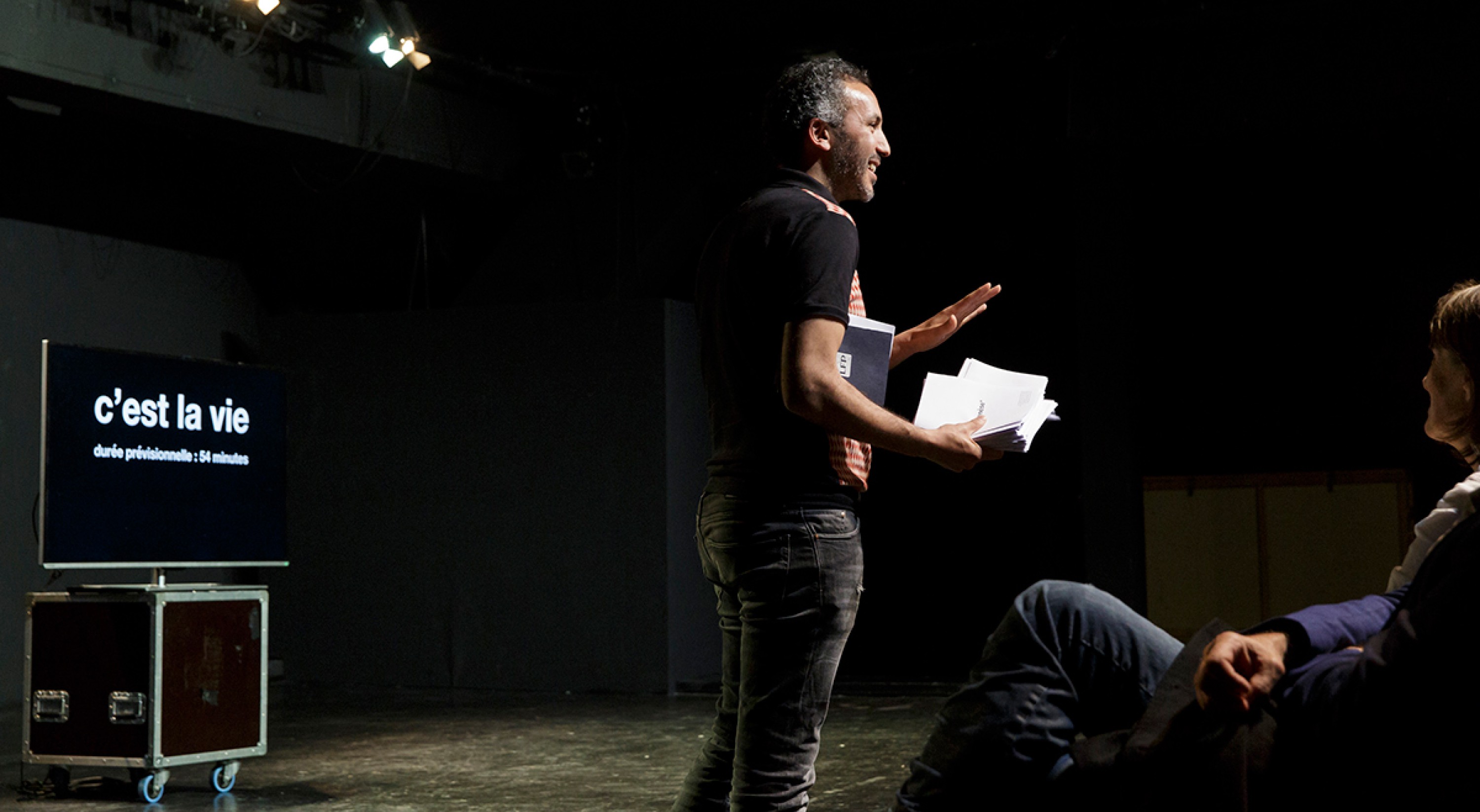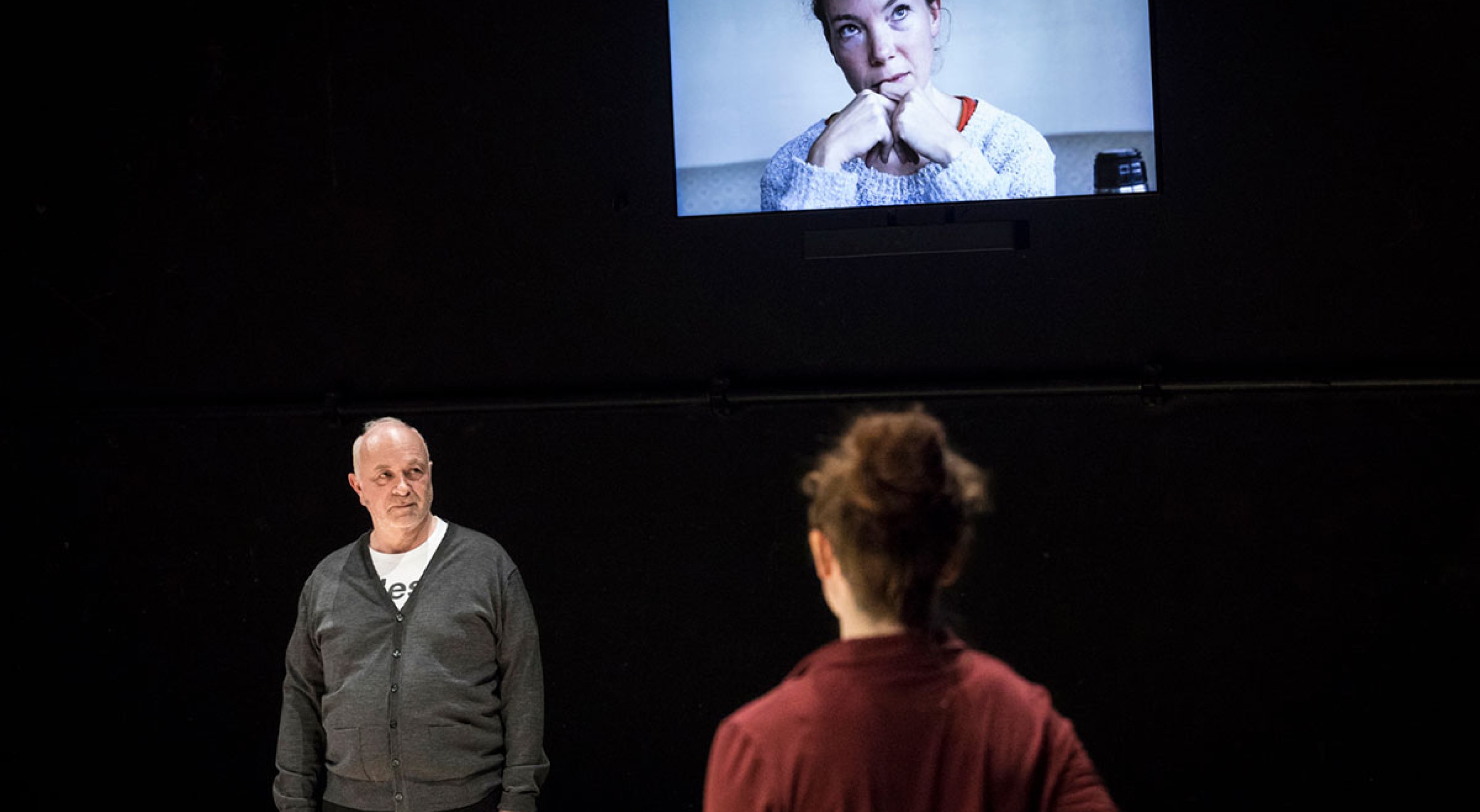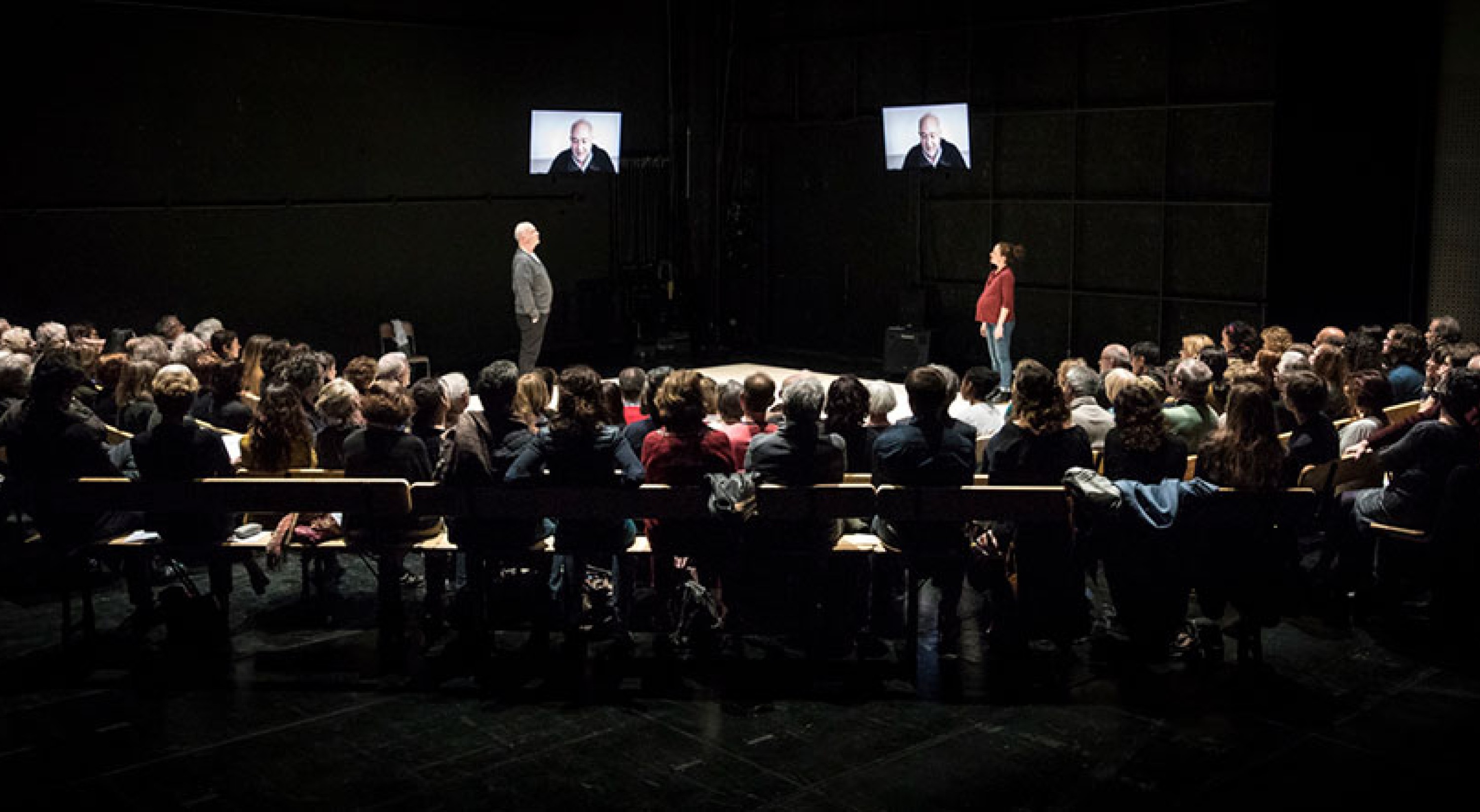Mohamed El Khatib
C’est la vie
junejun 16 – 17
Documentary performance by Collectif Zirlib
texte and concept, Mohamed El Khatib
With Fanny Catel and Daniel Kenigsberg
Design : Fred Hocké and Mohamed El Khatib
Technical management, Olivier Berthel
Production/Distribution, Martine Bellanza
Press relations, Nathalie Gasser
Co-produced by Théâtre de la Ville-Paris ; Bois de l’Aune (Aix-en-Provence) ; Théâtre Ouvert Centre National des Dramaturgies Contemporaines (Paris) ; CDN Orléans/Loiret/Centre ; Le Liberté – scène nationale de Toulon ; Centre dramatique national de Tours-Théâtre Olympia ; Pôle Arts de la scène de la Friche la Belle de Mai (Marseille) ; Festival d’Automne à Paris
This text, supported by the Centre national du livre (CNL), is a winner of the Commission nationale d'Aide à la création de textes dramatiques-Artcena. C’est la vie is published by Les Solitaires intempestifs (March 2017). // With thanks to : Bruno Clavier, Alain Cavalier, the A Mots Découverts association and Les éditions Vies parallèles (Brussels).
Zirlib has an agreement with the Ministry of Culture and Communication - Drac Centre-Val de Loire, supported by the Centre-Val de Loire Region and the city of Orléans.
When it comes to those that have lost a child, we are confronted with a terminological void. They become “orphans the other way round”. By inviting two actors to bear witness to this unspeakable pain, C’est la vie takes us into this desert in search of a word, a hope. Hovering between performance and on-the-edge experience, this delicate show treads a fine line indeed.
As actors, Daniel Kenigsberg, 61 years old and Fany Catel, 37 years old, are world’s apart. The former is coming towards the end of his career, the latter overflowing with different projects. But three years ago, each of them lost a child, a young man aged 25 years and a young girl aged 5 years. This occurrence things bring them together in many ways, as individuals. In particular, there is a rawness of emotion amongst those who have experienced a shock of this nature. That there is a before and and after is something that will remain with them forever. Mohamed El Khatib’s work centers on a myriad of interviews with “abandoned parents” that he has collected. Accompanied by two actors, playing the role of his or her life in every sense of the word, he puts together a small how-to guide for the living. With its en route twist on the question of the actor - the art of pretending in order to bring us closer to what is real - he offers us an intricate work, poised between restraint and extreme proximity with the audience. We learn what the hebrew word Shakoul means: “the mother bear who has had her little ones taken from her”. It fills a void, if only a terminological one.
See also


